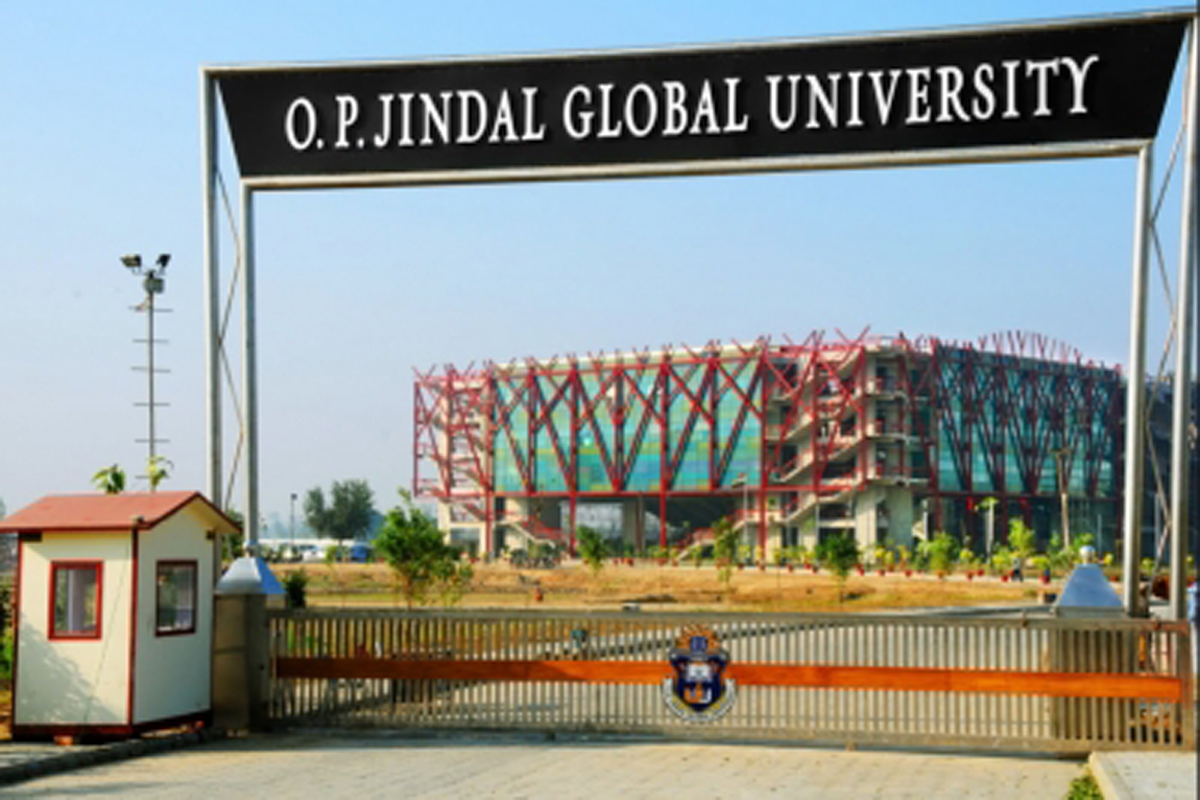May spirit of hope and wellness prevail’: PM Modi extends wishes to nation on New Year
The Prime Minister tweeted, “Wishing you a happy 2021! May this year bring good health, joy and prosperity. May the spirit of hope and wellness prevail,”
The three-day World Universities Summit organised by O.P. Jindal Global University (JGU), an Indian Institution of Eminence, hosted intense discussions and debates on how the education environment has changed forever, how the future will need to account for new realities, and how to address the limitations that have emerged during the pandemic.

Photo: IANS
The recently concluded mega World Universities Summit 2021 witnessed some of the most comprehensive deliberations on the impact of Covid-19 on the global higher education landscape, with a special focus on India. The Summit defined the impact of the Covid-19 pandemic on higher education and on learning environments worldwide.
As the world gradually comes out of the crisis, the message resonated by more than 150 thought leaders from 25 countries in 6 continents was to reimagine the future of universities globally to build institutional resilience with a strong sense of social responsibility and social impact.
The three-day World Universities Summit organised by O.P. Jindal Global University (JGU), an Indian Institution of Eminence, hosted intense discussions and debates on how the education environment has changed forever, how the future will need to account for new realities, and how to address the limitations that have emerged during the pandemic.
Advertisement
Vice President Venkaiah Naidu, inaugurated the first edition of the World Universities Summit in presence of Dharmendra Pradhan, Union Minister of Education, Professor (Dr.) D.P. Singh, Chairman, University Grants Commission (UGC), and Naveen Jindal, Founding Chancellor, O.P. Jindal Global University.
C. Raj Kumar, Founding Vice-Chancellor of O.P. Jindal Global University said, “As the world continues to face the largest global crises of our time, it is important that universities continue to find their collective consciousness and utilize their intellectual capital to pave a holistic and sustainable way forward for higher education institutions. The entire world is faced with the pivotal challenge of reimagining the role of universities than ever before.”
The Summit also brought into focus the sharp gaps in higher education that were exposed as rapid changes had to be implemented and there were issues of the digital divide preventing access to continued education for many. These deliberations occurred over 50 hours of live streaming across six continents and multiple time zones with more than 10,000 views.
“There is an array of possibilities about how technology and community engagement are most likely to affect future academic offerings and outcomes, ignited by innovative student engagement, impact-driven faculty research, and the pursuit of academic collaborations. Openness, rather than exclusivity, is the emerging operating model of the 21st century.
“The Summit brought together renowned academics and educational experts to help understand and build a higher education roadmap for the future to enable the aspiration and vision of our billions of students to create a global impact,” said Prof. Raj Kumar, the founding VC of O.P. Jindal Global University, and the chief architect of the World Universities Summit.
The high level of uncertainty and cessation of all educational activities led to the use of innovation and technological solutions which impacted learning, employability, research activities and all educational interaction but the future of universities will require unprecedented innovation and novel ways of imparting education and learning to ensure educational continuity.
Exceptional leaders from the global academic community brought intellectual depth, an internal perspective and vast experience to the deliberation to reimagine the future of the universities in the post-pandemic world and contributed to the vivid discussion on multiple themes like Navigating the Labyrinth: The University in a Post-Pandemic World; Role of Technology in Strengthening the Universities of the Future; transformative Leadership; Diversity & Inclusion in Higher Education; Collaboration among Universities in Times of Uncertainty; Social Responsibility; Digital Transformation, Virtual Sustainability & Digital Divide; Local Innovation and Meaningful Community Engagement; Nurturing Future Women Leaders; Financial Stability and Sustainability of Universities; Future of Work: Placements and Internships in the Post Pandemic World and more.
The summit witnessed 150+ Thought leaders from 6 continents and 25+ Countries from the US to Ghana to Russia to South Korea to Israel to Italy, making this a truly extraordinary moment to ensure a global perspective on local challenges.
Institutional heads from over 100 universities represented at the summit. This included 31 Vice-Chancellors, 28 Presidents & Rectors, 21 Provosts, Deputy/Associate/Executive Vice Chancellors & Vice/Associate Provosts, 25 Deputy/Vice/Executive/ Presidents & Rectors.
The World Universities Summit is a novel attempt by O.P. Jindal Global University to create global unity in diversity to overcome the challenges that have been set in these current times and to create a forum and knowledge centre which could benefit higher education across the world so that we can reimagine universities of the future for institutional resilience, social responsibility, and community impact.
Advertisement